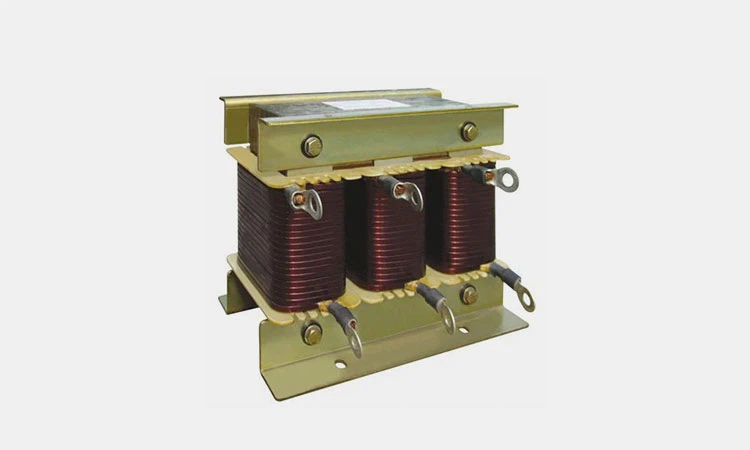What is a reactor? What are the types of reactors? What are AC line reactors and DC line reactors? What is the difference between them? How to choose AC line reactors and DC line reactors? What are their respective advantages and functions? What are their application areas?
This article outlines the characteristics and types of line reactors. It focuses on comparing the differences and similarities between AC line reactors and DC line reactors. Suppose you are worried about choosing AC line reactors and DC line reactors. This post is your best choice.

What Is Harmonic-sourced: googleusercontent
Harmonics are naturally generated in all AC and DC power sources, including drives and rectifiers. These harmonics are generated because the AC line voltage in the drive is higher than the DC bus voltage. Harmonics harm the grid system and must be eliminated because they increase system losses and disrupt the normal operation of other loads.

What Is A Line Reactor And How It Affects Harmonics-sourced: precisionautomation
Line reactors are also called inductors. They are coils of wire wound around a magnetic core. When current flows through the coils, magnetic fields are generated. These magnetic fields increase the impedance of the line, thereby reducing the amount of harmonics that the drive injects into the electrical system and facilities.
When the harmonics are smaller, the current amplitude is larger and the harmonic distortion is greater. When the harmonics are larger, the current amplitude is smaller. The current amplitude is generally inversely proportional to the harmonic number.

What Is An AC Line Reactor-sourced: baidpower
AC line reactors are devices that are specifically connected in series with the input line of the drive. They help reduce harmonics in the system. They are usually located between the line and the drive, acting as a buffer for surge and other transient transformers, while providing a high level of surge protection. AC line reactors also have disadvantages. There is a voltage drop across them, which can cause input voltage instability and cause the system to trip, which can negatively affect the output of the drive.

What Is A DC Line Reactor Or Choke-sourced: controlledmagnetics
The DC line inductor is usually connected between the diode and the DC bus. It also removes harmonics from the system. However, its ability to remove harmonics may be slightly less than that of the AC line reactor. The DC line reactor is usually smaller in size and adds the necessary impedance to reduce harmonics without reducing the system voltage. It does not introduce voltage surges to the rectifier to provide any additional buffering.
Both AC line reactors and DC line reactors have their advantages and uses.
The purpose of AC line reactors is:
Harmonic suppression
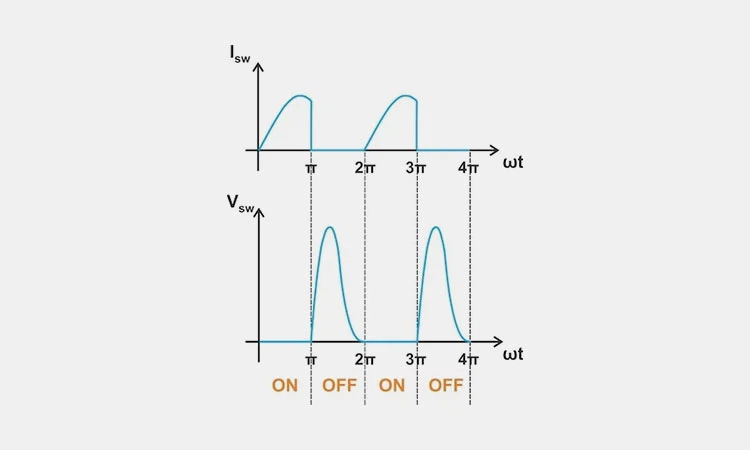
Harmonic suppression-sourced: allaboutcircuits
AC line reactors can limit harmonics, especially 5th, 7th, or higher harmonics and surge currents. This protects equipment from voltage spikes and transients on the AC line, improves the power factor of the system, and can also reduce line wave distortion caused by diodes and thyristor switches.
Its installation location is:
AC line reactors are usually installed on both sides of the AC power of the drive or power system, such as the input side of the inverter or between the grid and the rectifier.
Its main features are:
- It is suitable for systems with sinusoidal AC waveform frequencies.
- It uses a disc core and can effectively handle AC magnetic fields.
- Its rated impedance is usually expressed as a percentage, such as 3% impedance or 5% impedance.
The purpose of using a DC line reactor is:

The purpose of using a DC line reactor is-sourced: voltage-disturbance
- It can smooth the DC bus ripple current and reduce the peak current.
- Limit the inrush current generated when the motor starts or the load of the motor changes.
- Improve the efficiency of the inverter.
- Reduce discontinuous current and reduce the harmonics reflected from the AC side.
Its main features include:
- It is specially used in DC systems with minimal inductance changes.
- It is usually made of hollow or gapped iron core material.
The scope of use of AC line reactors and DC line reactors overlaps. They are widely used in:
Industrial machinery and the automation industry
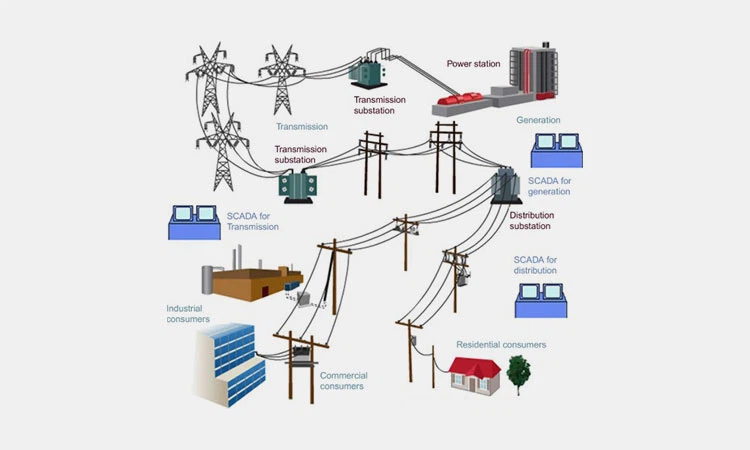
Industrial machinery and automation industry-sourced: sciencedirect
When the line reactor is matched with the motor drive, it can reduce the voltage spikes and harmonics generated by the switching of high-power equipment and maximize the service life of mechanical equipment.
Renewable energy systems

Renewable energy systems-sourced: jmhpower
Renewable energy systems include solar energy, wind energy, and other systems. AC line reactors can be installed in solar and wind power generation devices to help maintain the stability of power quality in the power grid. While filtering out electrical noise and harmonics, it can also ensure the efficient and safe operation of renewable energy systems.
HVAC systems
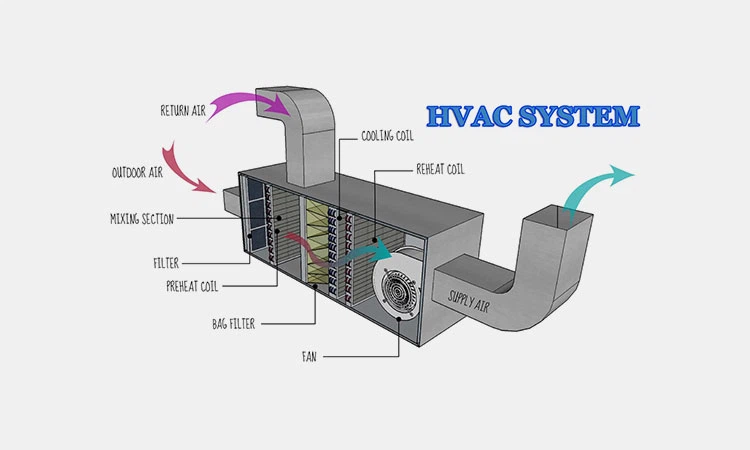
HVAC systems-sourced: frostheatingcooling
AC line reactors are widely used in HVAC systems, which significantly reduce electrical noise and reduce the interference of inverters.
DC line reactors are most commonly used in the following systems or equipment:
Variable frequency drives

Variable frequency drives-sourced: realpars
DC line reactors can be used in variable frequency drives to stabilize the DC bus voltage between the rectifier and the inverter. While reducing current ripple, it can also improve motor performance, including protecting capacitors from large peak currents, thereby extending equipment life.
Solar and wind inverters
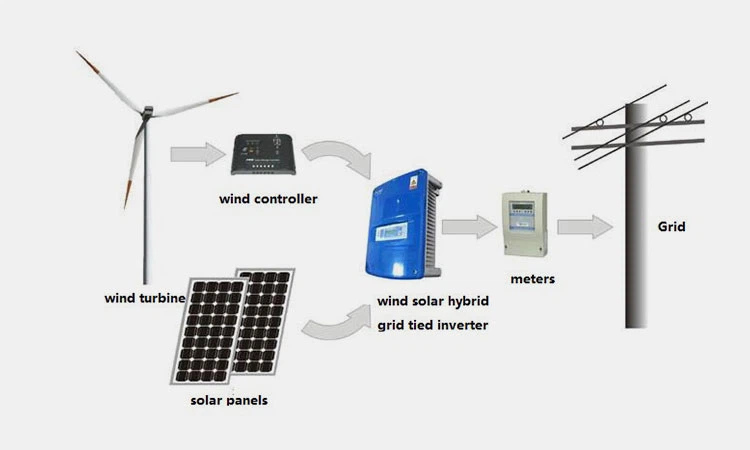
Solar and wind inverters-sourced: solarpanelkitschina
DC line reactors are widely used in solar and wind inverters. They can convert DC power to AC power and smooth the DC input of solar panels or wind turbines. While improving inverter efficiency, they can also prevent reverse current surges.
Uninterruptible power supplies and battery systems
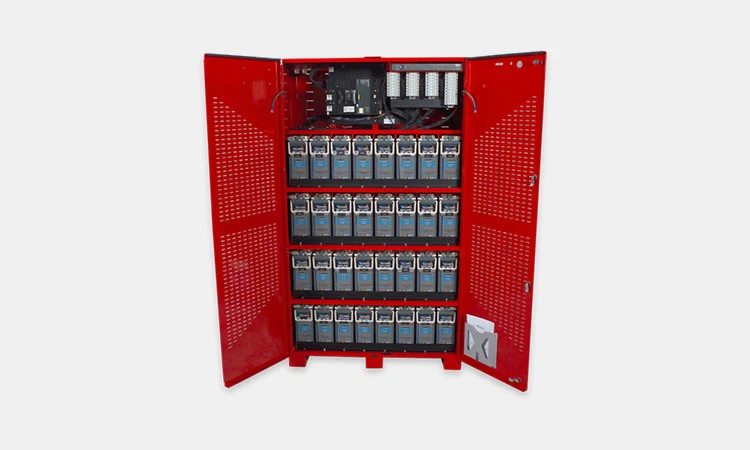
Uninterruptible power supplies and battery systems-sourced: arimon
DC line reactors can be used in uninterruptible power supplies and battery systems to filter the DC output in electrolytic, electroplating, and smelting applications.

Why Is It Important To Ground With AC Line Reactors And DC Line Reactors-sourced: romanmfg
In the power system, if the fault current is not grounded, when this current flows through the drive, it will damage the drive. Therefore, it is very important to properly ground the fault current.
The AC line reactor has the function of grounding itself. However, the single-coil DC line inductor does not have the function of grounding. Therefore, when you use the DC line inductor, you can use the new double-coil DC line reactor. This reactor has the function of grounding and can protect your equipment well.
The main difference between AC line reactors and DC line reactors is that while they both reduce harmonics and maintain voltage, DC reactors are not as good at mitigating harmonics as AC reactors. Other differences are:
AC line reactors reduce harmonics, mitigate transient conditions, and help maintain proper phase-to-phase voltage. DC reactors also mitigate harmonics, but their harmonic attenuation is less than that of an AC reactor of the same size.
|
AC line reactors
AC line reactors-sourced: acdcdrives DC line reactors |
DC line reactors
DC line reactors -sourced: schaffner
|
|
|
Reduce harmonics |
AC reactors can reduce harmonics, mitigate transients, and maintain proper voltage. |
DC line reactors can mitigate harmonics, but the effect is weaker. |
|
Enhance transients |
AC reactors can provide additional protection, reducing the voltage across the rectifier. |
DC reactors can protect against transients and avoid rectifier failure due to current transients. |
|
Cost |
AC reactors are more expensive than DC reactors, but they have better performance and are more widely applicable. |
DC line reactors are larger, more expensive, and more efficient, but have the disadvantage of lower peak line voltage thresholds. |
|
Increase impedance |
AC line reactors can provide a high impedance path for fast transients, reducing the transient voltage across the rectifier. |
DC line reactors provide a low impedance path for fast transients. |
|
Losses |
AC line reactors have higher losses, but they have better transient voltage protection performance. |
DC line reactors have lower losses, so they work more efficiently.
|
The advantages of AC line reactors include:
Harmonic suppression
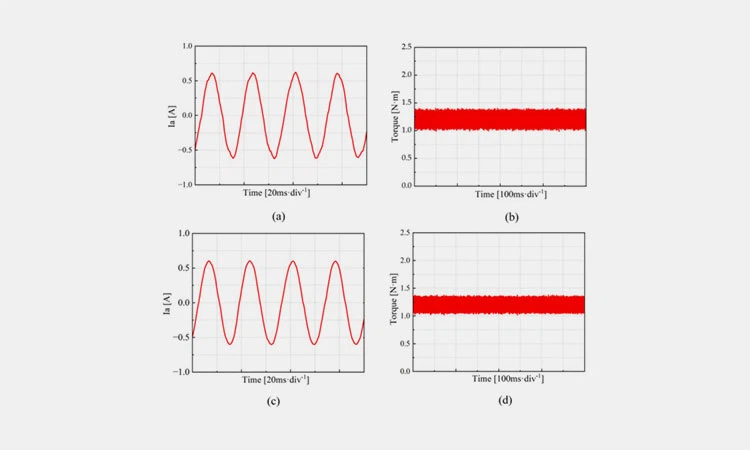
Harmonic suppression-sourced: mdpi
Reducing the total harmonic distortion in the system by continuously suppressing high-frequency noise harmonics such as the 5th, 7th, and 11th order.
Surge and voltage spike protection

Surge and voltage spike protection-sourced: electronicsbeliever
By reducing the voltage sag caused by fast-switching semiconductor devices. AC line reactors can absorb voltage transients caused by grid disturbances such as lightning strikes or capacitor switching, thereby stabilizing the system voltage.
Inrush current limiting
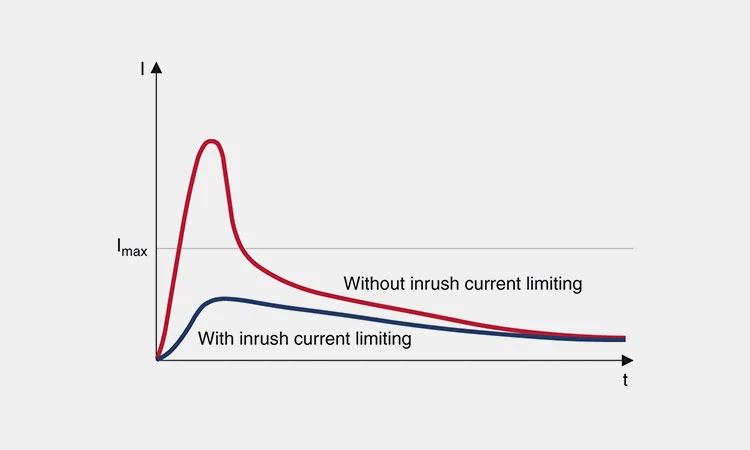
Inrush current limiting-sourced: ept
It can limit the inrush current, thereby soft-starting the motor or transformer, preventing switch tripping during the startup process, etc.
Power factor improvement

Power factor improvement-sourced: eeeguide
It can correct part of the power factor and smooth the current wave to reduce the demand for reactive power, thereby reducing the adverse effects of low power factor.
Extending the service life of equipment
By limiting high-frequency current, it can protect the motor from voltage spikes, thereby minimizing overheating of cables or transformers and extending the service life of equipment.
EMI or RFI noise reduction
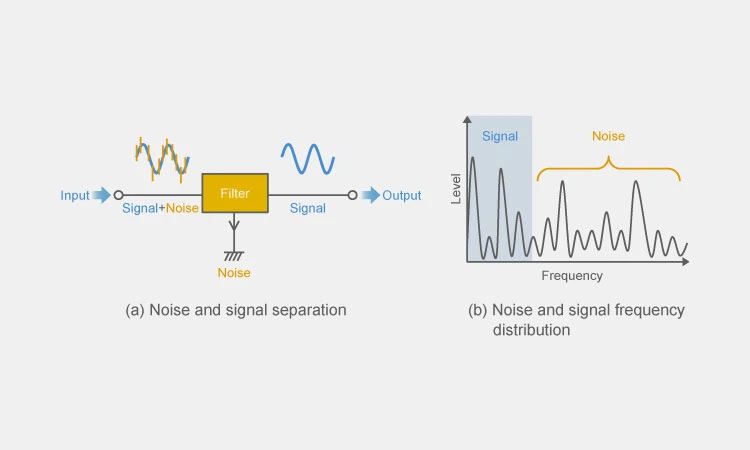
EMI or RFI noise reduction-sourced: murata
It can filter out most of the high-frequency noise that interferes with the communication system and prevent interference from any other noise in the automated production line.
Although AC line reactors have many advantages, they also have many disadvantages in their design. These include:
Causing sensitive equipment to trip
AC line reactors are prone to under-voltage and tripping of sensitive equipment at low speeds, which can affect the circuit performance of weak grids or grids with low short-circuit capacity.
Power loss or heating

Power loss or heating-sourced: wikimedia
AC line reactors are prone to losses or heating caused by resistance in the windings. Therefore, they require additional cooling in closed switchboards, which increases operating costs.
Limited harmonic suppression effect

Limited harmonic suppression effect-sourced: mdpi
Unlike active filters, although it can reduce harmonics, it cannot eliminate them. And it has a poor effect on reducing high-frequency harmonics.
Design flaws
Its volume design is large and bulky, and is easily limited by space. Therefore, its installation requirements are higher, and it has a larger core and windings, which are not convenient for daily operation and are more complicated to install.
Higher cost

Higher cost-sourced: stock
More materials, such as copper or iron, are used, which increases the cost and makes it more expensive than DC reactors.
Potential resonances
Harmonic resonances can occur when AC line reactors interact with power factor correction capacitors.
The advantages of DC line reactors include:
Limiting line current peaks

Limiting line current peaks-sourced: iaeimagazine
DC line reactors can slow down the rise of current and prolong the current conduction phase. It produces a nearly square waveform with a maximum peak of 180% of the rated input current. Therefore, it can limit the current peak of the line.
Reducing line current harmonics

Reducing line current harmonics-sourced: researchgate
DC line reactors can effectively eliminate the 5th to 13th system harmonics. It can effectively smooth the harmonics in the current and suppress the total harmonic distortion in the system.
Smoothing DC bus voltage

Smoothing DC bus voltage-sourced: knowlescapacitors
DC line reactors can reduce the effective value of the DC bus voltage and also reduce the losses of power semiconductors.
Although DC line reactors are very capable and widely used, they still have disadvantages. These include:
Cannot replace output reactors
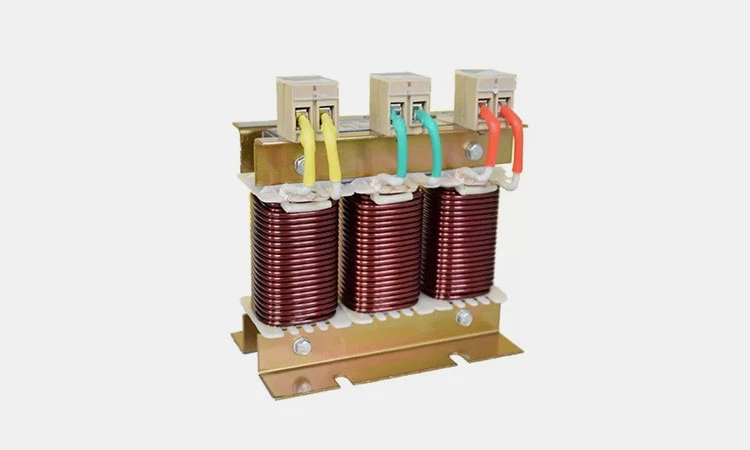
Cannot replace output reactors-sourced: inverters
DC line reactors cannot ensure that longer cables can be used without output reactors. If the cable length in your system exceeds 200 meters, you still need to use output reactors.
Cannot operate with current
With DC line reactors, the motor windings cannot operate with current, so you may use filters.
To improve the quality of power, eliminate harmonics, surges, and weak grids, you may have AC reactors. If you would like smooth DC output, such as variable frequency drives, inverters, high current DC systems, etc., you can choose DC reactors. If you want to refer more equipment to protect your power system, you are welcome to us!

